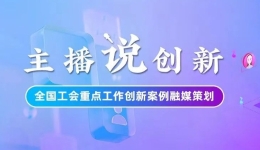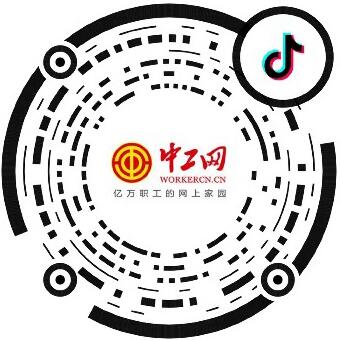Original title: Is sudden death of employees in both dormitory and office work injury? Subject
Whether his death occurred during working hours and at his post has become the focus of controversy (subtitle)
Worker's Daily - reporter Lai Zhikai from China Industrial Network
Reading tips
Whether it is in line with the condition of being deemed as work-related injury when a worker leaves from the dormitory with office function to the kitchen and dies of a sudden disease in the kitchen after invalid rescue? The court held that the attendance record only showed the working time but not the off duty time, and the existing evidence of the employer was not enough to prove that the death of the worker was not an industrial injury.
Li Kou (not his real name) from rural Hebei worked in a company, but the company did not sign a labor contract with him and did not pay for his work-related injury insurance. Li died suddenly in the kitchen of the unit dormitory when he was dispatched by the company to an enterprise to engage in warehouse management. The company refused to apply for identification of work-related injury for Li Kou because his sudden death in the kitchen after dinner was not in the working time and place.
After hearing, the court held that the attendance record of the company only showed Li Kou's working hours and no off work hours, and it was possible for him to continue working after eating. In addition, the existing evidence of the company is not enough to prove that Li Kou's dormitory is not confused with the office, and his death after on-site rescue in the company kitchen found by his colleagues is in line with the provisions of deemed work-related injury. Recently, the Beijing Second Intermediate People's Court ruled against the company's appeal and upheld the first instance verdict.
Sudden death in dormitory kitchen during assignment
During Li Kou's tenure, the company signed a labor contract with him from January 1, 2022 to June 30, 2022, with the deadline of completing certain work. The contract stipulates that Li Kou is engaged in front office work in Beijing, and the company can reasonably change his job position and tasks based on the needs of production and operation on the premise that he is competent, and his labor remuneration is 200 yuan per day.
On March 1, 2022, Li Kou was transferred to the position of warehouse keeper and sent to work in an enterprise according to the Cooperation Agreement signed between the company and the enterprise. The Cooperation Agreement stipulates that the company will recruit staff for the company according to its needs, and the company will bear all the rights and responsibilities for the legal disputes between the candidate and the company or the company after employment.
At about 19:40 on June 8, 2022, Li Kou was found fainted by his colleagues and then sent to the hospital for rescue. On August 5 of the same year, the public security organ recognized his death as sudden death.
The company refused to apply for identification of work-related injury for Li Kou. Li Kou's relatives submitted an application for identification of work-related injury to Fengtai District Human Resources and Social Security Bureau (hereinafter referred to as the Human Resources and Social Security Bureau) with the identification conclusion of the public security organ, Li Kou's labor contract, Li Kou's job description and other materials.
Whether it belongs to industrial injury causing dispute
It has become the focus of controversy whether Li Kou died of sudden illness during working hours and on his post.
Based on the facts found out, the Human Resources and Social Security Bureau believes that although the company signed a labor contract with Li Kou, according to the agreed content and actual employment situation, both parties are subject to laws and regulations. At the same time, the labor provided by Li Kou is also a part of the company's business, and the actual labor relationship between the two parties has been formed. On this basis, Li Kou is identified as an industrial injury according to the provisions of Paragraph 1 of Article 15 of the Regulations on Industrial Injury Insurance.
The company disagreed with the determination of industrial injury made by the Human Resources and Social Security Bureau, and complained to the court of first instance: "Li Kou was responsible for warehouse management in an enterprise at the time of the incident, and his action track before death was that he returned to the dormitory to cook dinner after work that afternoon, and died suddenly in the kitchen while washing dishes after dinner. Since Li Kou's death time is the non working time after work, and his death place is also in the kitchen rather than the working place or post, nor is he engaged in work related matters or finishing work, it does not constitute an industrial injury. "
The Bureau of Human Resources and Social Security argued that the company had a cooperative relationship with an enterprise. Li Kou was an employee assigned by the company to work in an enterprise. He was specifically engaged in warehouse management. The daily management was in the charge of an enterprise. The unit provided dormitory accommodation. The use of nail punching was used for attendance. Only one punch in every day was the day's attendance. The dormitory was located at the gate of the yard where the warehouse belongs. There were two beds in the dormitory, Upper and lower bunks, two desks. An enterprise provides a kitchen, and Li Kou can cook by himself to solve the problem of eating.
In addition, based on the analysis of existing evidence, the attendance records provided by the company cannot restore Li Kou's working hours and off duty hours, and the company dormitory is set as both a dormitory and an office, so the company needs to bear the adverse consequences of failure to provide evidence. The Human Resources and Social Security Bureau, combining the evidence of both parties and ascertaining the facts, believes that Li Kou started from the dormitory with office function and went to the kitchen, where he suddenly fell ill and died after rescue, which is in line with the situation deemed as work-related injury.
The court supports the determination of work-related injury
The court of first instance held that Li Kou's dormitory and office were mixed, and the attendance records provided by the company and the statements of the company's employees proved that Li Kou had only clocked in at work, not clocked out at work. Since the attendance record only shows Li Kou's working time and does not show his off duty time, Li Kou may have meals to meet the needs of life and will continue to work in the mixed dormitory after eating.
Li Kou died suddenly in the kitchen provided by the company. The company believed that Li Kou's death was not in his working hours and position, and should not be deemed as work-related injury, and provided relevant evidence to the Human Resources and Social Security Bureau and accepted investigation. However, the existing evidence of the company is not enough to prove that Li Kou's death is not an industrial injury. According to Article 19 of the Regulations on Industrial Injury Insurance, if the employee or his close relatives think it is an industrial injury and the employer does not think it is an industrial injury, the employer shall bear the burden of proof. The company shall bear the adverse consequences of failure to provide evidence.
To sum up, the determination of work-related injury made by the Human Resources and Social Security Bureau has clear facts, sufficient evidence, correct application of laws and regulations, and legal procedures without any impropriety. The company's request for revocation of the determination of work-related injury is unfounded, and its lawsuit request is not supported. In accordance with Article 69 of the Administrative Procedure Law, the court of first instance rejected the company's claim.
The company appealed against the judgment, and Beijing Second Intermediate People's Court rejected the appeal and upheld the first instance judgment.



















